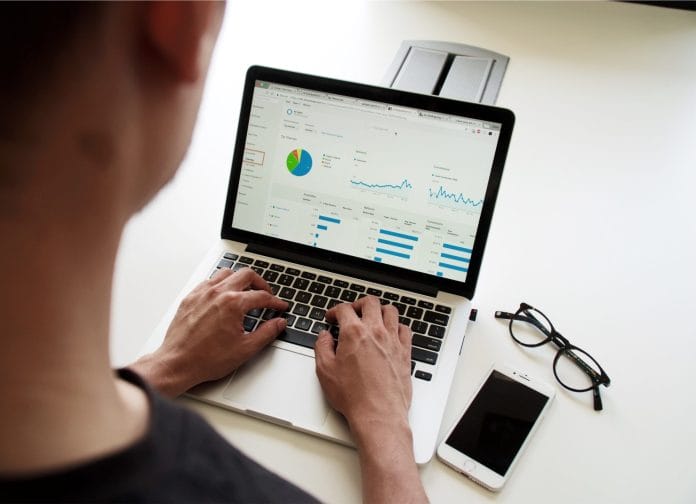
By: Prof. Ts. Dr. Manjit Singh Sidhu Professor at the College of Computing and Informatics, Universiti Tenaga Nasional (UNITEN), Fellow of the British Computer Society, Chartered IT Professional, Fellow of the Malaysian Scientific Association, Senior IEEE member and Professional Technologist MBOT Malaysia
Digital twins have the potential to optimize energy systems across diverse sectors. In transportation, they can be applied to optimize public transportation systems, resulting in reduced fuel consumption, decreased traffic congestion, and improved urban air quality. Energy-intensive industries like steel, cement, and chemicals can also benefit by using digital twins to optimize their energy-intensive processes, thereby reducing energy costs.
The optimization of public transportation systems through digital twins involves analyzing data related to routes, schedules, and vehicle performance. By considering factors such as traffic patterns and passenger demand in real-time, digital twins can suggest optimal routes, leading to reduced fuel consumption and decreased traffic congestion. This not only enhances the efficiency of transportation systems but also contributes to environmental sustainability by lowering emissions.
In energy-intensive industries, where processes like steel manufacturing, cement production, and chemical processing demand substantial energy inputs, digital twins provide a holistic view of operations. By monitoring and optimizing energy-intensive processes, industries can identify opportunities for efficiency improvements, reduce overall energy consumption, and consequently lower operational costs. This aligns with Malaysia’s commitment to sustainable industrial practices and resource conservation.
In addition, promoting human-machine collaboration through digital twins holds promising prospects in Malaysia. Energy managers in industries can collaborate with automated systems, making real-time decisions to optimize energy use and reduce operational costs. Similarly, building operators can work in tandem with digital twins in smart buildings, ensuring occupant comfort while minimizing energy consumption.
Energy managers in industries play a critical role in overseeing energy consumption and operational efficiency. By collaborating with digital twins, these managers can access real-time data and analytics, allowing them to make informed decisions to optimize energy usage. This collaborative approach enhances the agility of industries in responding to dynamic energy demands, contributing to cost savings and improved sustainability.
In the context of smart buildings, where energy consumption is a significant factor, human-machine collaboration through digital twins ensures a balance between occupant comfort and energy efficiency. Building operators can utilize real-time data to adjust heating, ventilation, and air conditioning (HVAC) systems, lighting, and other energy-consuming elements to meet occupants’ needs while minimizing energy consumption. This synergy between human decision-making and machine intelligence creates a more adaptive and efficient built environment.
Moreover, given Malaysia’s energy efficiency regulations and sustainability targets, digital twins play a pivotal role in facilitating compliance reporting. They provide accurate and transparent data, ensuring adherence to energy efficiency and emissions reduction targets. Furthermore, digital twins aid industries and businesses in conducting energy audits more effectively, identifying areas for improvement and contributing to the overall sustainability agenda.
Compliance with energy efficiency regulations and sustainability targets is a paramount concern for Malaysia. Digital twins serve as a reliable tool for industries and businesses to meet these regulatory requirements. By providing accurate and transparent data, digital twins streamline the compliance reporting process, offering a comprehensive overview of energy consumption patterns and emissions. This not only ensures adherence to regulatory standards but also facilitates the tracking of progress towards sustainability goals.
Energy audits, a crucial aspect of regulatory compliance and continuous improvement, are made more effective through the utilization of digital twins. These virtual replicas allow industries to conduct detailed assessments of energy usage, identify inefficiencies, and pinpoint areas for improvement. The insights gained from digital twin-based energy audits empower businesses to implement targeted measures, enhancing overall energy efficiency and contributing to a more sustainable operational model.
Malaysia stands at the cusp of a transformative journey towards enhanced energy efficiency and sustainability, driven by the adoption of digital twins. The multifaceted applications of real-time monitoring, simulation, predictive maintenance, energy consumption forecasting, system optimization, human-machine collaboration, and regulatory compliance showcase the versatility and power of digital twins in shaping the nation’s energy landscape.
The manufacturing sector, a cornerstone of Malaysia’s economic prowess, can undergo a paradigm shift towards sustainability by leveraging real-time monitoring through digital twins. This not only aligns with global environmental goals but also positions Malaysia as a leader in responsible industrial practices. The integration of renewable energy sources is facilitated by digital twins’ ability to simulate scenarios, ensuring a seamless transition to a more sustainable and resilient energy grid.
In vital sectors like oil and gas and power generation, the implementation of predictive maintenance through digital twins enhances operational reliability, reduces downtime, and optimizes resource utilization. Energy consumption forecasting empowers the national grid operator to manage energy supply efficiently, mitigating the risks associated with peak demand. The optimization of energy-intensive processes in industries and the enhancement of public transportation systems further contribute to a comprehensive and sustainable energy strategy.
The collaboration between human decision-makers and digital twins in industries and smart buildings reflects a holistic approach to energy management. It not only improves operational efficiency but also prioritizes occupant comfort and well-being. Finally, compliance reporting and energy audits facilitated by digital twins ensure that Malaysia remains on course to meet its energy efficiency and sustainability targets.









